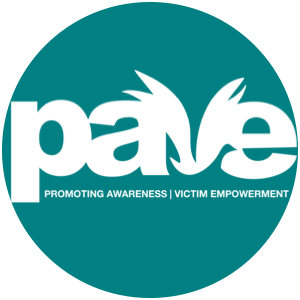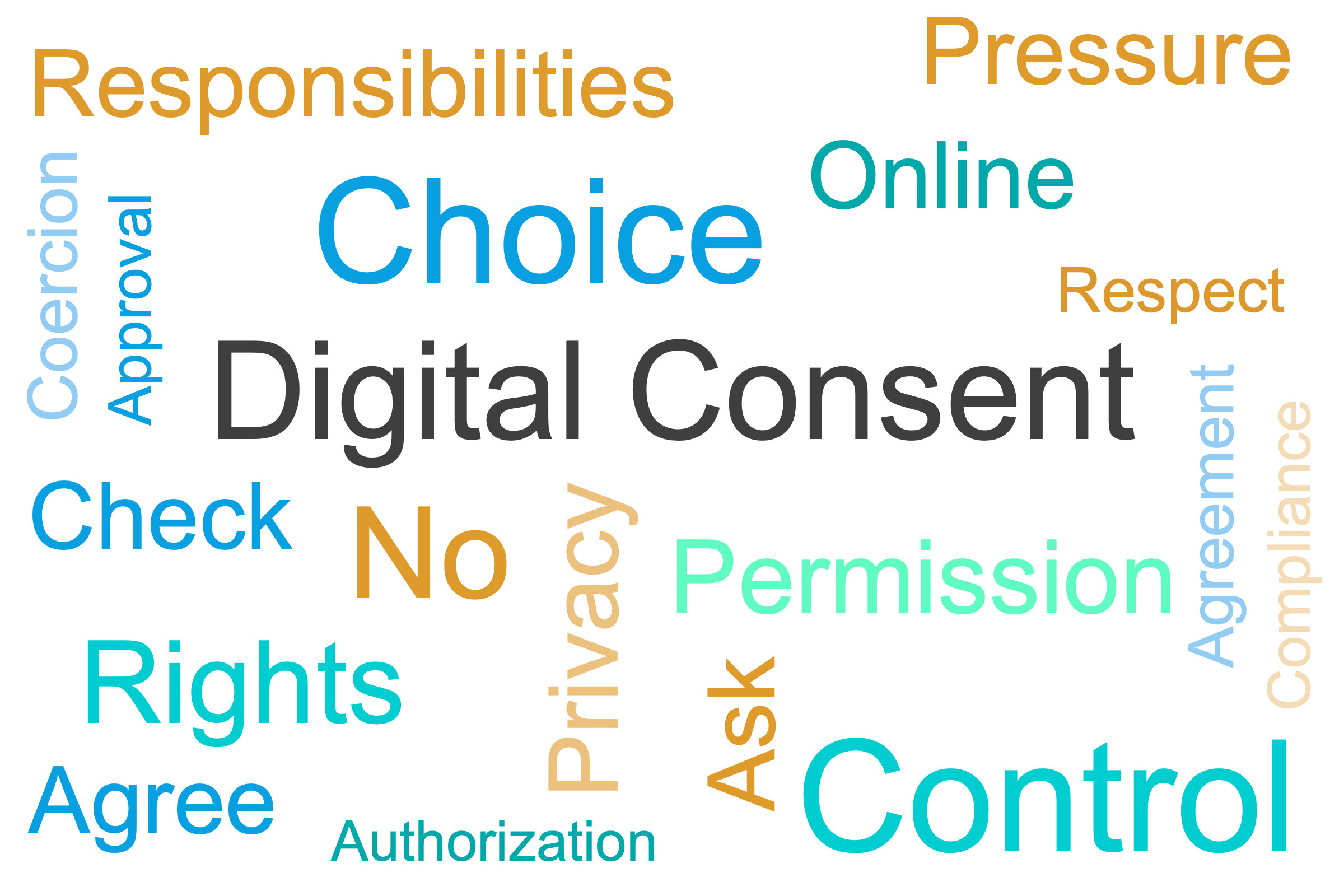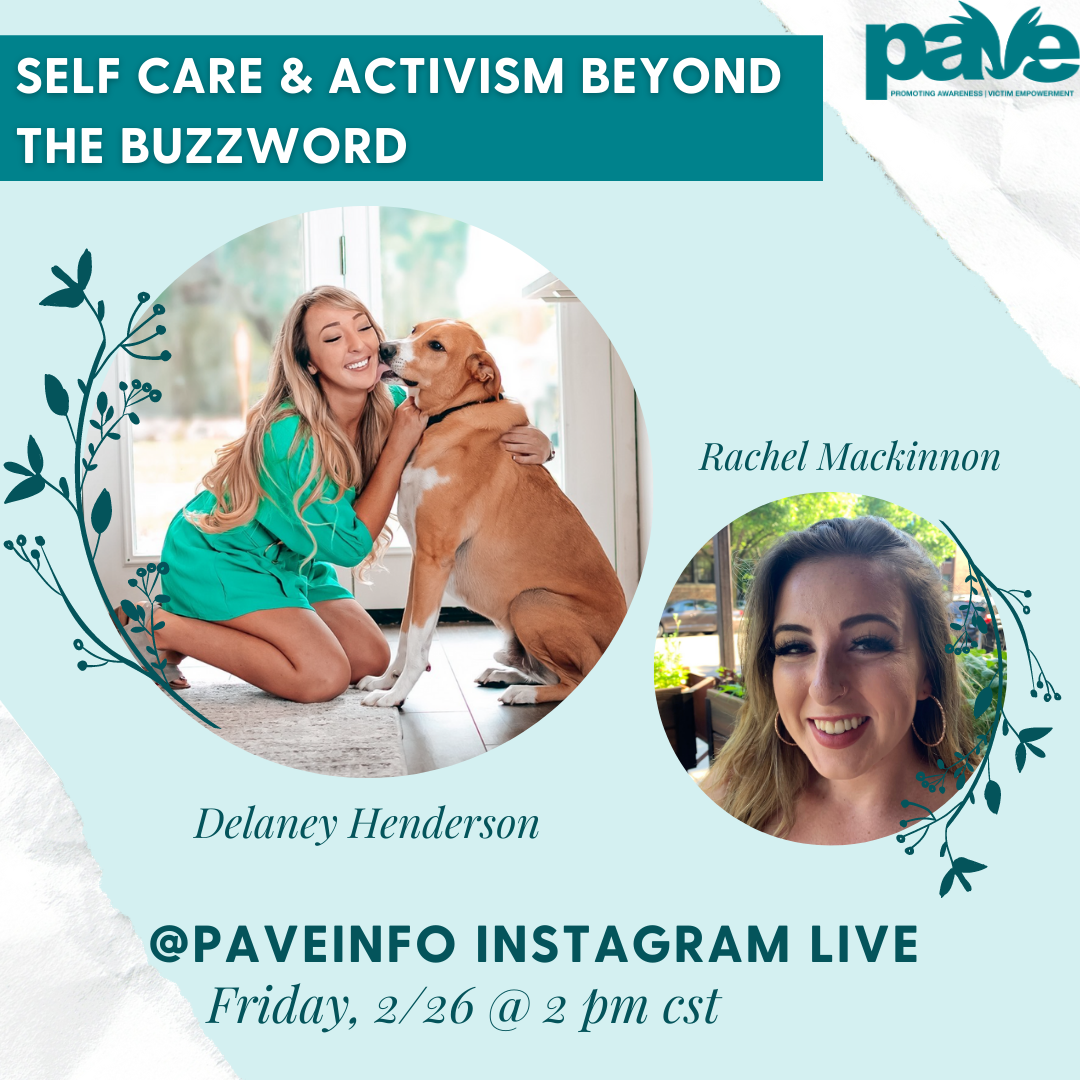
Teen Dating Violence Awareness & Prevention Month
PAVE’s Teen Dating Violence Awareness & Prevention Month Campaign is a national campaign dedicated to raising awareness and Shattering the Silence about teen dating violence. Join us in becoming a catalyst for change!
Calendar of Events
Each day of the week is a different day of action! View our social media toolkit for ways you can get involved in your community.
What are consent and digital consent?
Consent and Digital Consent
Consent MOVES is an easy to remember acronym that describes what person to person consent is quickly and easily:
Mutual
Ongoing
Verbal
Enthusiastic
Sober
In the digital world, we need to establish what “digital consent” is. More than ever people are interacting online, through dating and social media apps. We seem to forget that what is allowable online is no different than what is allowable in person.
Check out our blog post on Digital Consent HERE!
Do you have Questions About Consent, Sex, Relationships, Kissing, Digital Consent, Dating Apps, Bullying, etc.?
Ask us using our completely anonymous Google Form, and have your questions answered during PAVE’s “Real Talk!”
Information about dating app violence
Information about dating app violence
Six-in-ten female users ages 18 to 34 say someone on a dating site or app continued to contact them after they said they were not interested, while 57% report that another user has sent them a sexually explicit message or image they didn’t ask for. At the same time, 44% report that someone called them an offense name on a dating site or app, while 19% say they have had someone threaten to physically harm them. - Pew Research Center Stats
-It has been found that more than 50% of college students use online dating (Beauchamp et al., 2017; Newett, Churchill, & Robards, 2018). - OSU.edu
-The vast majority of college students will also try to make face-to-face connection, with 83.7% of students will meet someone face-to-face after connecting with them online (Beauchamp et al., 2017). - OSU.edu
-Women Ages 18-24 are at an elevated risk of sexual violence - RAINN
-23.1% of cis-female college students, 5.4% of cis-male college students, and 21% of Transgender, Genderqueer, and Non-conforming college students are sexually assaulted. - RAINN
Digitizing Abuse is an Urban Institute project studying the role of technology in teen dating abuse and harassment and in teen bullying. Knowing how many teens are affected and how they’ve been victimized can inform strategies to address this problem.
25 percent of dating teens report they’ve been digitally victimized by their partners. Only 9 percent seek help, and rarely from parents or teachers.
84 percent of digital abuse victims said they were also psychologically abused.
52 percent of digital abuse victims said they were also physically abused.
33 percent of digital abuse victims said they were also sexually coerced.
Two-thirds to three-quarters of cyber bullying victims said they were also physically abused.
Victims of cyber bullying were almost three times as likely to also experience digital dating abuse or harassment.
LGBTQ youth reported much higher rates of digital dating abuse and cyber bullying than heterosexual youth.
Credit: Digitizing Abuse Infographic
Support all survivors of sexual violence
How to support a survivor
Whether you are a parent, friend, spouse, partner, or other family member, you can be a pivotal force in your loved one’s recovery from sexual assault. It is also important to recognize that the assault can be traumatizing for you as a loved one, so please make sure you practice self-care and seek professional help if needed.
Tell them you believe them.
Be supportive and thank that person for sharing their experience.
Tell them it was not their fault.
Listen, Listen, Listen.
Focus on the survivor’s emotions, not on actual facts about the assault.
Do not accuse or judge your loved one.
Gently encourage the survivor to report the assault, but respect their decision if they choose not to.
Although it may be difficult, try not to over-protect your loved one.
Encourage them to seek professional counseling.
Do not pretend the assault never happened.
Shattering the Silence About Teen Dating Violence in Your Community
How to Shatter The Silence of Teen Dating Violence
Educate yourself and your network! Check out our courses on PAVE University: Consent, Bystander Intervention, and Survivor Support.
Read and share our campaign blog posts, “Self-Care Beyond the Buzzword,” and “
Spread the word! Follow our social media posts and share them to your friends and followers.
Join PAVE and become a PAVER! PAVE works tirelessly to advocate for the awareness and prevention of sexual violence in all forms.








